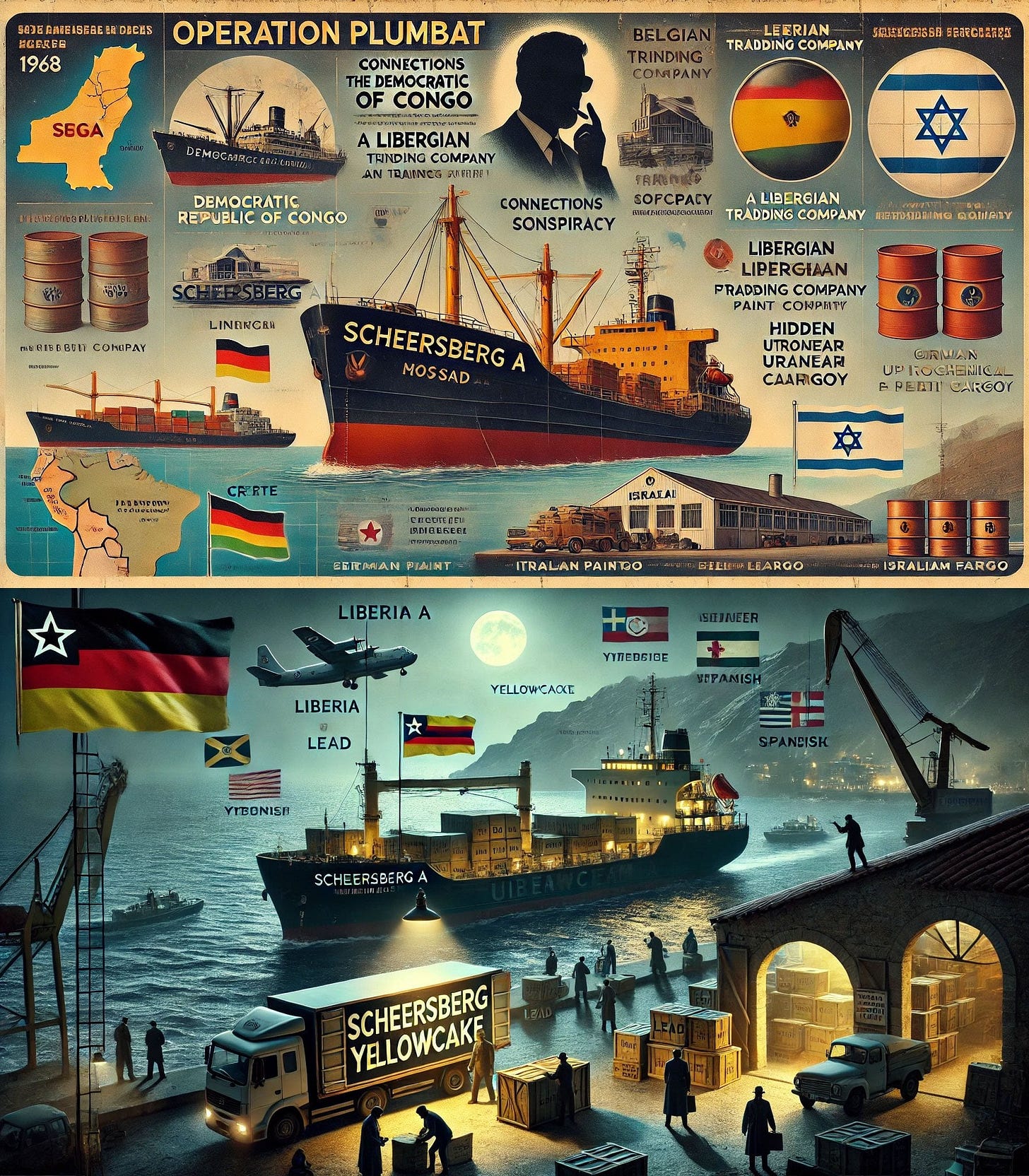On January 15, 1968, the Israeli Mossad executed one of the most daring and innovative intelligence operations in history, known as Operation Plumbat. This covert mission involved the acquisition of 200 tons of yellowcake uranium, a key component for nuclear weapons development. The operation's brilliance lay in its audacious simplicity and use of commercial cover. Israeli intelligence agents, posing as representatives of a West German petrochemical company, purchased the uranium from a Belgian mining company in Antwerp. The uranium was then loaded onto a cargo ship, the Scheersberg A, ostensibly bound for Genoa, Italy. Key innovative aspects of Operation Plumbat included:
Use of a front company: The Israelis created a fake West German firm to make the purchase, effectively hiding their involvement.
Maritime deception: Once at sea, the Scheersberg A rendezvoused with an Israeli vessel in the Mediterranean. The uranium was secretly transferred, and the Scheersberg A continued to Genoa with an empty hold.
International misdirection: The operation involved multiple countries, making it difficult to trace and investigate.
Exploitation of regulatory loopholes: The Israelis took advantage of lax regulations in international shipping and nuclear material transfers.
The success of Operation Plumbat significantly advanced Israel's nuclear program while maintaining plausible deniability. It demonstrated the effectiveness of using commercial entities as cover for intelligence operations and highlighted the vulnerabilities in international nuclear material controls. This operation remains a textbook example of innovative intelligence gathering and covert action, influencing future clandestine operations and prompting changes in international nuclear safeguards.




